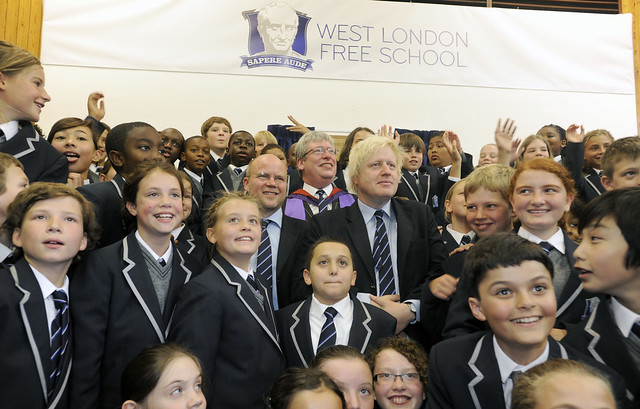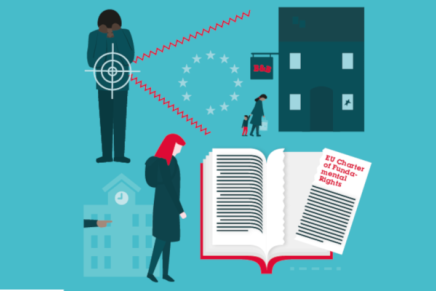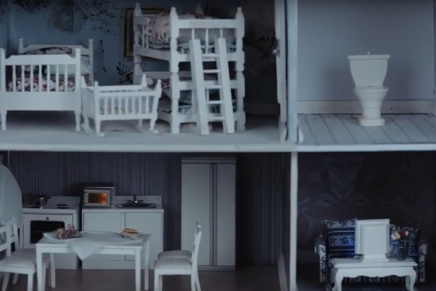
On Wednesday, two months after Theresa May announced her resignation, Boris Johnson became our new Prime Minister. In a leadership contest dominated by Brexit, the voices and concerns of children didn’t play much of a part, and it doesn’t seem the new PM has much of a plan for how to protect and promote children’s rights. To help him out, we’ve put together this short to-do list with a few suggestions for how to set this right and ensure a brighter future for children and young people.
1. Reform the law on school exclusions
Every child has a right to an education which allows them to pursue their dreams and fulfill their potential. In recent years, though, there has been a rise in the number of children being permanently excluded from school. These children often end up struggling to access the education they need to progress in their lives, and many end up stuck in Pupil Referral Units. These lack the educational standards of mainstream schools, and children there often fall prey to criminal exploitation and get funnelled into a life of crime.
What is even more shocking about this situation is that it often proves impossible to overturn unfair exclusions. The independent panels where parents can go to contest exclusions currently don’t have the power to reinstate a child in education – even if they find an exclusion to be unlawful! This is particularly concerning when we consider, as was reported in the recent school exclusions review by Edward Timpson, that exclusions disproportionately affect children from Black and Minority Ethnic backgrounds, and those with special educational needs and disabilities.
There’s lots that needs to be done to improve our education system and ensure children get the best possible start in life. A simple place the next Prime Minister could start would be to introduce effective oversight mechanisms for school exclusions to ensure schools are held to account and all children are given a fair chance with an education that empowers them to contribute to society.
2. Ensure appropriate housing for all children
All children deserve a home where they feel safe and secure. But despite legal obligations for local councils to provide suitable homes for children, unacceptable numbers of children continue to be housed in inappropriate accommodation for long periods of time.
Department for Education figures show that last year over 3000 children under care of local authorities in England were housed in independent accommodation, which often lacks live-in staff support and includes unsupervised B&Bs. Meanwhile, homeless families with children continue to be housed in inappropriate B&B-style accommodation, many of them for longer than they should be by law. At the end of March 2018 2,230 families with children, including those headed by a child, were housed in B&Bs. Nearly 40% of them were there for longer than six weeks – which is the legal limit for housing children in this kind of accommodation.
If our new Prime Minister needs to know more about why action on this issue is so important, all he needs to do is listen to children themselves. Over the last couple of years we have been working with a group of children with experience of homelessness to empower them to talk about their experiences and campaign for change. Last year they wrote a report about what it’s like to live in B&B-style accommodation, and met with the Housing Minister to discuss possible solutions. We’re sure they would be interested in meeting with the new Prime Minister to share their ideas on how he can ensure that every child has a safe and stable place to call home.
3. Put the brakes on “Knife Crime Prevention Orders”
Reducing violent crime will rightly be a priority for the new Prime Minister. Despite this being an issue people of all ages and from all regions, inner city children and young people are disproportionately painted as perpetrators in media coverage. This leads to kneejerk reactions from politicians which often end up doing more harm than good.
When it comes to steering children away from violence, there are solutions out there, such youth support outreach programmes, which get to grips with the issue by tackling the root causes of why children get involved in this kind of behaviour in the first place. There is also progress to be made in ensuring that we respond to children in trouble with the law in a way that helps them to escape the strong current of crime. One way to help achieve this is by ensuring they have advice and representation from specialist youth justice lawyers.
These policies stand in stark contrast to the government’s plans for new “Knife Crime Prevention Orders”, which were rushed through parliament earlier this year. Based on the disastrous Anti-social Behaviour Orders (“ASBOs”), police will be able to use these new powers to put restrictions on children as young as 12 – including those who have never carried a knife or been involved in violent crime – with severe criminal penalties for minor infringements of the orders. We already know that children from Black and Minority Ethnic (BAME) backgrounds are more likely to end up in the criminal justice system and more likely to end up in custody following sentencing. Shockingly the latest official data shows there are more children in prisons for young people from BAME backgrounds than from white backgrounds. Arming police with yet more discretionary powers will only lead to further disproportionality.
Rather than reducing violent crime in our communities, these new police powers will push more children into the criminal justice system, trapping them in a life of crime and preventing them from reaching their potential. Rather than regressive measures that will only exacerbate these problems, our new Prime Minister should focus on coming up with solutions that get to the fundamental causes of violent crime in our communities.
4. Correct our unjust criminal records system
In January, the Supreme Court handed down a landmark judgment on our criminal records system. The judges decided that the current system for disclosing youth reprimands and cautions was unlawful and ordered the government to change the system – but new legislation has yet to be brought forward.
Youth reprimands and cautions are supposed to divert children who have committed minor crimes from the criminal justice system, but under the current regime some reprimands and cautions can appear on police checks for decades after they were issued. The Supreme Court rightly decided that this system is disproportionate and damaging to the future rehabilitation of children, preventing them from moving on from their past.
MPs agree with this assessment. A 2017 inquiry by the House of Commons Justice Select Committee found that this undermines the ability of the youth justice system to steer children away from crime. Instead, children find themselves trapped by their past. The next Prime Minister should work with his parliamentary colleagues to ensure that this is corrected, as well as asking the Law Commission to conduct a root and branch review of the criminal records systems for children and young people to ensure criminal records do not blight their lives indefinitely.
5. Protect legal rights after Brexit…
Brexit will undoubtedly be the prime concern of the next Prime Minister, but in all the debates over trade deals and customs unions, it’s vital that children are not forgotten. An urgent issue will be the status of children of EU citizens. There are more than half a million children of EU nationals living in the UK, many of whom were born here. There is still a lack of clarity over whether the Brexit arrangements will safeguard the rights of these children, and many could face unforeseen barriers to applying for UK settled status. The new Prime Minister must guarantee the rights of these children to a secure and stable future in the UK.
Another concern for children’s rights post-Brexit is the loss of the EU Charter of Fundamental Rights, which the government excluded from being transposed into UK law in the EU Withdrawal Act. Article 24 of the Charter gives rights specifically to children, including the rights to protection and care, and to have their views taken into consideration. These rights aren’t enshrined in current domestic legislation, and there is a serious risk they will be lost after Brexit if action is not taken.
Our country is clearly divided as to whether Brexit will have a positive or negative effect, but surely we can all agree that children should not be left to suffer as a result of EU withdrawal. Our new Prime Minister should act urgently to ensure that they aren’t.
6. …and extend them further
It’s vital that we protect the rights and entitlements that we already have, including those in the Human Rights Act, but a real legacy for the next Prime Minister would be one which saw rights extended further. In November we will celebrate the 30th anniversary of the United Nations Convention on the Rights of the Child. This landmark agreement, ratified by 140 countries, sets out the minimum expectations for how governments the world over should treat children. It guarantees them all the things that every person needs to live a happy and healthy childhood, from education, play and family life to freedom from exploitation and fair treatment in the justice system.
The UK ratified the Convention in 1991, but it has still not been incorporated in domestic law. What better way for the next Prime Minister to mark this anniversary year, and show his commitment to the wellbeing of children, than to finally bring about this legislation? Doing so would send a clear signal that this is a country where we want every child to have the opportunity to reach their potential and have their rights respected and promoted. At the very least, he should enact a statutory child rights duty on all government ministers to ensure that they take into account the rights of children when making a policy or budgetary decision.
But there’s lots, lots more to do
This list is far from exhaustive – there is a lot more that the next Prime Minister needs to do to ensure that every child can reach their potential, growing up respected, promoted and safe. From ending child imprisonment to introducing simpler pathway to citizenship and better mental health support for children, this goal is not only possible but also crucial.
Luckily a more comprehensive list is available. Our State of Children’s Rights report includes eight thematic briefings outlining the government’s record on protecting children’s rights, and presents a set of clear recommendations for government policy to transform and improve young lives.
We’re happy to send the new Prime Minister a copy. We know his address.
Enver Solomon is CEO of Just for Kids Law. A version of this article was first published by OpenDemocracy. It was published under a Creative Commons Attribution-NonCommercial 4.0 license and is re-posted under these terms.

